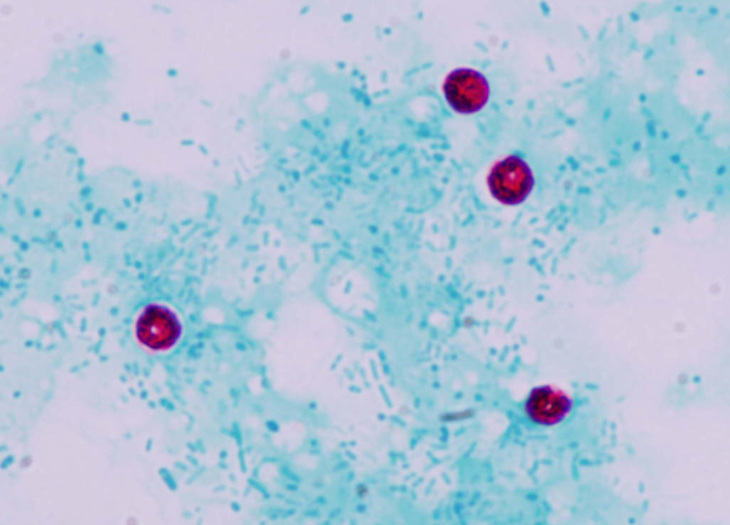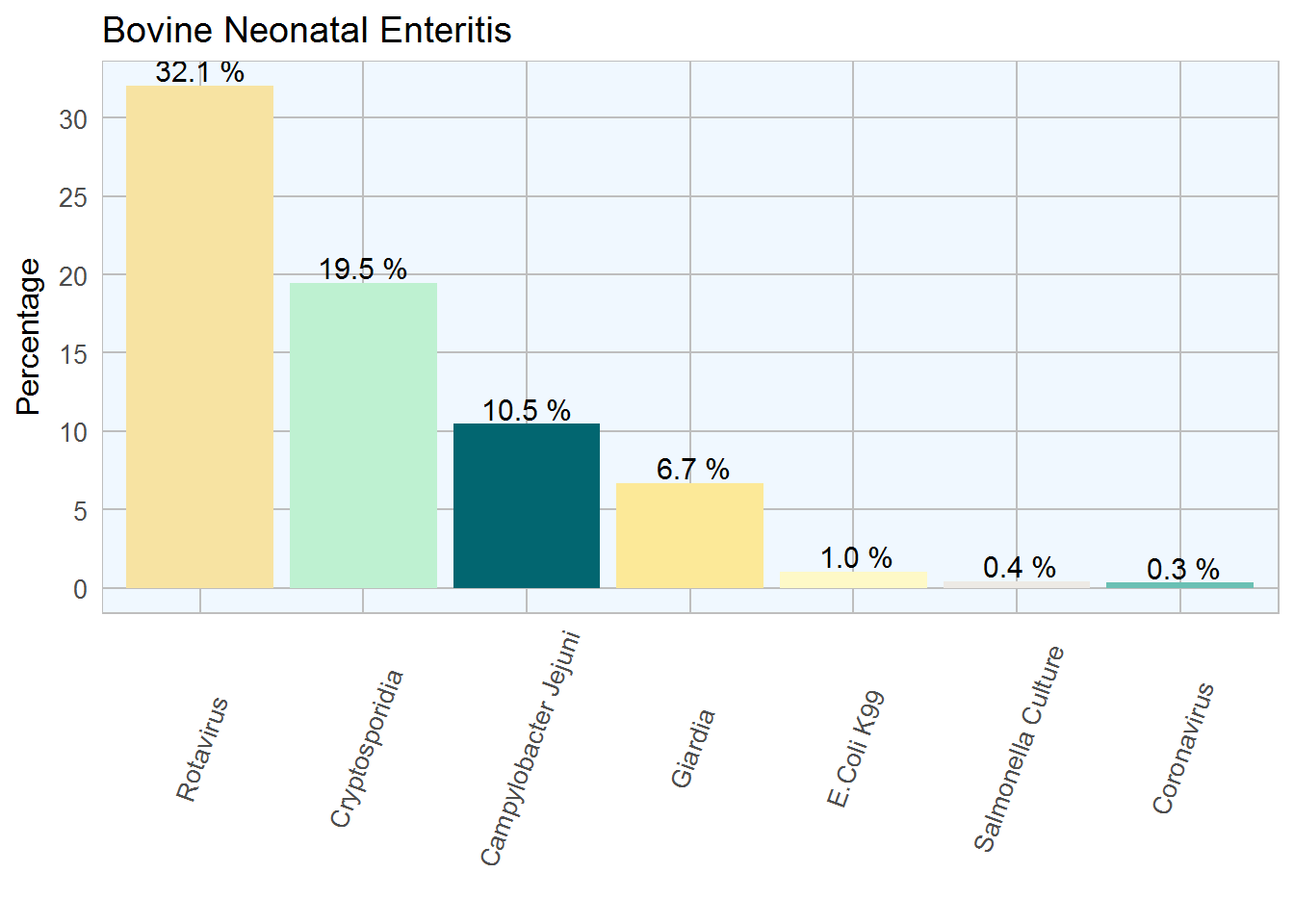Neonatal enteritis is one of the most common causes of mortalities in calves up to one month of age and it is generally caused by the interaction of a number of infectious enteropathogens and predisposing factors. These section shows the most common infectious agents diagnosed in calves under one month.
| Organism | Negative | Positive | Percentage |
|---|---|---|---|
| Rotavirus | 1276 | 602 | 32.1 |
| Cryptosporidia | 1501 | 363 | 19.5 |
| Campylobacter Jejuni | 1565 | 183 | 10.5 |
| Giardia | 923 | 66 | 6.7 |
| E.Coli K99 | 1248 | 13 | 1.0 |
| Salmonella Culture | 1864 | 8 | 0.4 |
| Coronavirus | 1856 | 6 | 0.3 |

Figure 8.1: Cryptosporidial oocysts in a faecal smear. Photo:Cosme Sánchez-Miguel

Figure 8.2: The relative frequency of enteropathogenic agents identified in calf faecal samples tested by DAFM laboratories in 2017
The significance of Giardia and Campylobacter jejuni as a cause of calf enteritis is doubtful. Both are a common cause of gastroenteritis in humans and they are routinely surveyed in neonatal faecal samples.






